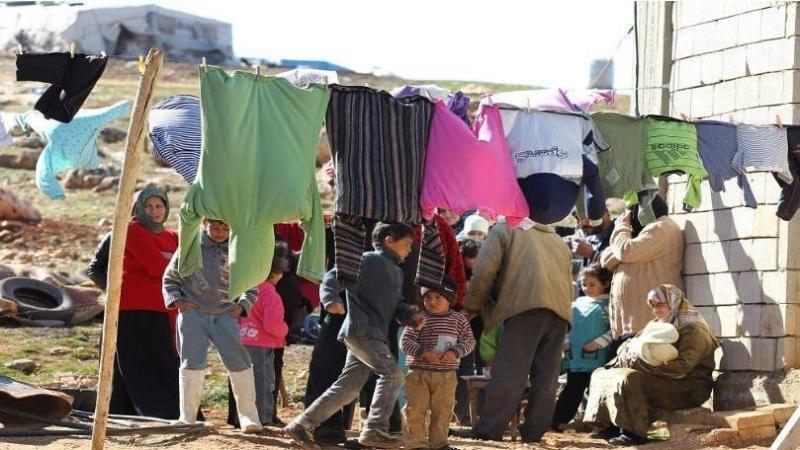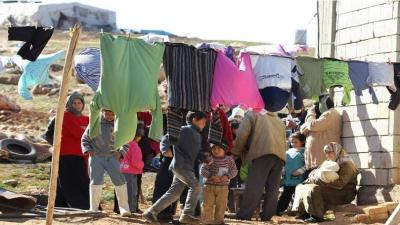Lebanese President Michel Aoun is seeking to initiate the return of Syrian displaced persons to their country ahead of the end of his term in about two weeks. This process had stalled since 2019 due to the COVID-19 crisis and consecutive crises in Lebanon. Aoun announced yesterday that the completion of the maritime border demarcation agreement will be followed by the gradual return of Syrian refugees, starting next week.
Sources close to the President indicated that "the issue of the return of the displaced is part of the efforts of the ministerial committee formed for this purpose, and General Director of General Security, Major General Abbas Ibrahim, has been tasked with following up with the Syrians." The sources noted that "the General Security opened centers to receive applications from those wishing to return, where thousands of Syrian families have registered." The sources told "Asharq Al-Awsat": "Next week, we will witness the beginning of the return of groups of families, with the first batch including 1,600 families."
The Lebanese government has been active for months on multiple levels to facilitate the return of Syrian displaced persons. However, it consistently complains about the lack of response from the international community and organizations to facilitate this return. The Minister of Social Affairs in the caretaker government, Hector Hajjar, stated that "what is happening today is a continuation of old plans for return," adding in a statement to "Asharq Al-Awsat" that "there is a comprehensive approach and work on both political and technical levels." He emphasized: "The Lebanese General Security is following up the technical matter with the Syrian authorities, and the displaced who left areas that have become safe will return to them, while those from areas currently under reconstruction will temporarily reside in shelters."
Hajjar explained that there is minimal coordination with the Refugee Commission, which is informed about the numbers of those departing. He reiterated that they are convinced that the Commission and a number of countries do not encourage return, but when Lebanon's position is unified, they can impose their will as Lebanese citizens. This is what happened with the demarcation file and what will happen with the displaced file because Lebanon can no longer bear the burdens of displacement in terms of material, health, economic, environmental issues, or crime rates, and it is time for us to feel relieved in the East and North after being relieved from the sea."
For her part, Dalia Harb, the spokesperson for the Refugee Commission in Lebanon, stated to "Asharq Al-Awsat": "At the moment, the Commission is not facilitating or encouraging widespread voluntary returns of refugees from Lebanon to Syria, noting that thousands of refugees choose to exercise their right to return each year." Harb reiterated the Commission's call to "respect the fundamental right of refugees to return freely and voluntarily to their home country at the time they choose," confirming the continued engagement of "the UN High Commissioner for Refugees in dialogue with the Lebanese government, including the General Security Office, in the context of return movements they facilitate."
The caretaker Prime Minister Najib Mikati had escalated his position unprecedentedly in June when he threatened to forcefully return the displaced, stating: "The international community must cooperate with Lebanon to return Syrian displaced persons to their country, otherwise, Lebanon will take an undesirable stance towards Western countries, which is to work on legally expelling Syrians from Lebanon by strictly enforcing Lebanese laws."




